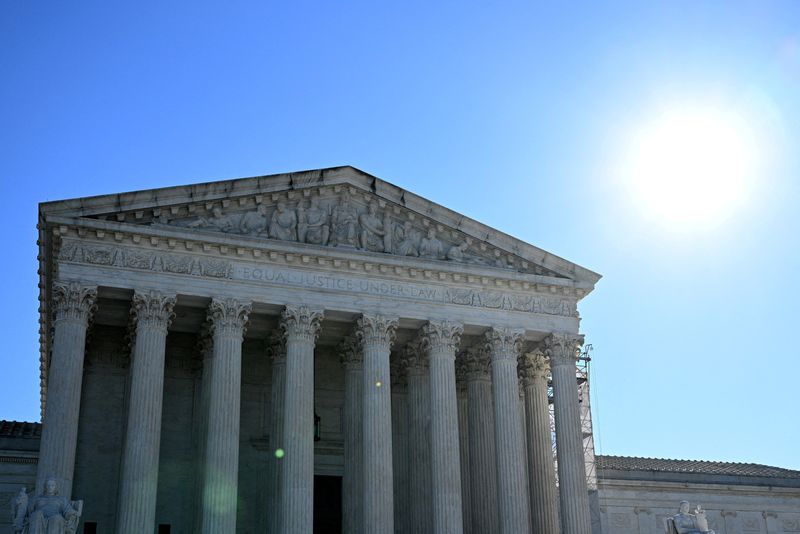By Nate Raymond (NS:RYMD)
(Reuters) -The U.S. Supreme Court declined on Monday to hear a challenge based on constitutional free speech protections to a voter-approved measure in Alaska that requires greater public disclosure of certain political donations, as the justices passed up a chance to further curtail campaign finance regulation.
The justices turned away an appeal by several Alaskan residents and advocacy groups, represented by a conservative legal group, of a lower court's ruling upholding the law narrowly approved as a ballot initiative in 2020.
The initiative, called Ballot Measure 2, adopted sweeping changes to the state's elections system. The plaintiffs objected to what they called some of the most stringent disclosure requirements in the United States on political donors.
The voters adopted a non-partisan open primary system, a method called ranked-choice voting for the general elections in which voters rank candidates in order of preference, and a series of changes to Alaska's campaign-finance laws to address the use of "dark money" in elections.
The term "dark money" generally refers to election spending by certain organizations that do not disclose the identity of their donors, leaving voters in the dark as to who is trying to influence them.
The case before the U.S. Supreme Court, pursued by the conservative legal group Liberty Justice Center, involved only a challenge to the campaign-finance requirements of the Alaska measure. The plaintiffs argued that the Alaska disclosure requirements violate the rights of donors under the U.S. Constitution's First Amendment, which protects against governmental abridgment of free speech.
Scott Kendall, a lawyer for a group called Alaskans for Better Elections that backed the new law, called it gratifying to see the Supreme Court turn away the case and allow a disclosure system like Alaska's to stand.
"Alaska's dark money requirements are state of the art in the country," Kendall said.
Jacob Huebert, president of Liberty Justice Center, called the Supreme Court's decision disappointing. But Huebert said the appeal concerned only a preliminary ruling and that his group would keep litigating at the lower-court level, potentially giving the Supreme Court another chance to review the law's legality.
"It violates the First Amendment and should ultimately be struck down," Huebert said.
The Supreme Court in a landmark 2010 ruling in a case called Citizens United v. FEC invalidated longstanding campaign finance restrictions and enabled corporations and other outside groups such as unions to spend unlimited funds on elections. The court found that such restrictions violated the First Amendment.
The Citizens United ruling and subsequent Supreme Court decisions helped usher in an era of unprecedented spending in U.S. elections.
The provisions in the 2020 ballot measure marked a significant tightening of Alaska's laws after the state ceased restricting who could make independent expenditures supporting or opposing candidates following the Citizens United decision.
The new Alaska law required anyone who contributes $2,000 or more annually to an organization making independent expenditures to support candidates in elections to, within 24 hours, report their donation or face a penalty of up to $1,000 per day.
The measure also required political donors to report the "true sources" of their contributions, which in essence would mean that advocacy groups that derive funds from donations, dues or gifts must disclose who provided them their funding.
And it mandated that groups running television ads to influence the election that received most of their funding from donors outside Alaska must include a disclaimer in capital letters stating that fact for the ad's entire duration.
A group of voters along with the advocacy groups Families of the Last Frontier and Alaska Free Market Coalition sued in 2022, arguing that law violated their First Amendment right to freely engage in core political speech, violated the rights of donors and would coerce independent groups to air state-mandated messages.

Families of the Last Frontier and the Alaska Free Market Coalition both make independent expenditures not coordinated with a candidate's campaign to influence an election.
A trial court judge handling the case declined to block the law's enforcement. The San Francisco-based 9th U.S. Circuit Court of Appeals Circuit upheld that ruling in March, saying the disclosure requirements were "reasonably tailored to the state's important interests in keeping the public informed."